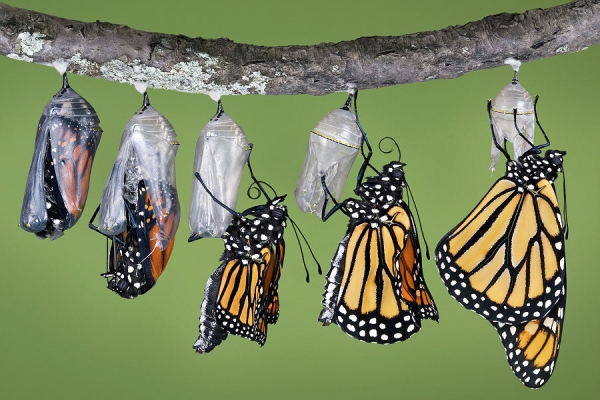They expect their students to toe the line and venture out into the uncharted waters of knowledge. They may hear some of them say, “I want to master English as soon as possible” or “I’m hellbent on studying Astrophysics at Harvard.” Still, teachers fail to see that all these aims and aspirations belong to their students as they are now. In other words, they take their students at face value, they see them as larvae rather than as butterflies. And they do that because they fail to see themselves as such. Their students actually mirror their mental state.
By definition, transformation means a change into something else; what we start with is not what we end up with. The student (or the teacher, for that matter) who enters a class is not the same as the one who comes out of it. She grows, and this is the role of education: to facilitate this growth. But what does ‘to grow’ mean other than to be willing to be somebody with different thoughts, ideas, convictions, and experiences?
Many people believe that growth merely means earning this or that degree or mastering this or that skill, but there is more to it than meets the eye. Growth is tantamount to transformation, and the most telling example is that of the butterfly. At first, the teacher (or the student) is a larva—small, big, yellow, black, or whatever—, and wants to become bigger, more colorful, something different, but still a larva. The notion of butterfly never crosses his or her mind. The student may want to be a doctor or a singer or land a well-paid job, and the teacher may want to get a pay rise. All these wants are dictated by their ‘larva ego’, not their true Essence, the core of their existence. That’s what their ancestors probably wanted to be, that’s what their parents may expect of them. They are not aware of their ‘butterfly potential’, their ability to become something even bigger than their wildest dreams. Certainly, a teacher who cannot think big cannot recognise, let alone foster, this capacity in her students. Either consciously or unconsciously, she will guide them in a certain direction, according to her own programming, her own principles or preconceptions. A larva can only think of other larvae. A larva cannot think of butterflies.
That’s why a keen knowledge of one’s own subject matter is not enough. On this plane, knowledge cannot reach any deeper than a mere exchange of information. ‘Larva knowledge’ takes a crooked perspective on reality and the world.
In order to grow and facilitate growth in their students, teachers should reach deep into their own ‘butterfly realm’, and tap into their transcendental selves that are willing to allow things to emerge, unfold, change, and transform; the part of them that can realise that their hitherto entertained conceptions of the future have relied much too heavily on blueprints they already know and, in order for them to grow, these blueprints must change too.
‘Transcendental teachers’ go for the bigger picture, they don’t see problems as problems, but as opportunities to discover themselves and their students. For these teachers, a student who says, “I want this to be that way” or “I’m a weak student” or “I’ll definitely become a doctor” is only a transient state that will change in remarkable ways. No student will be ‘weak’ or ‘indifferent’ or ‘aggressive’ forever; they are larvae that explore their ‘cocoon’ before they look themselves in the mirror, and find out they are ‘butterflies’. This mirror is the teacher.
Dr.Dimitris Thanasoulas
Chief Editor Tower Bridge Books








